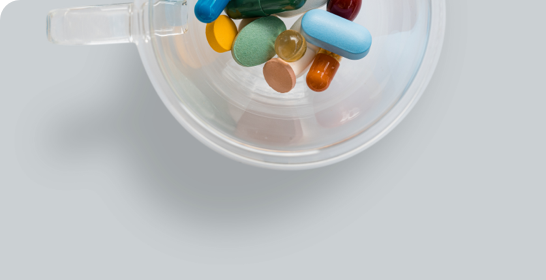We use cookies to make your experience better. To comply with the new e-Privacy directive, we need to ask for your consent to set the cookies. Learn more.
CogniWin - Citicoline base powder
Synonym(s):
- Cytidine 5’-diphosphocholine; CDP-choline
- CAS Number: 987-78-0
- EC Number: 213-580-7
- Chemical Formula: C14H26N4O11P2
- Molecular Weight: 488.327 g/ mol
CogniWin - Citicoline base powder
Citicoline Key Facts
Background
Citicoline is a naturally occurring chemical compound that supports brain function and health. It is an intermediate in the generation of phosphatidylcholine from choline, and is well known for its neuroprotective effects – meaning it helps to protect and repair the cells, structure, and function of the brain and nervous system. It is a precursor to acetylcholine and phosphatidylcholine that may improve memory, focus and brain health (cognitive function), and has been shown to have beneficial effects in degenerative and vascular cognitive decline (1,2).Supplementing with citicoline is generally considered safe, with minimal side effects, making it a promising addition to therapeutic strategies aimed at preserving and enhancing brain health. As the global population ages, the importance of compounds like citicoline in maintaining cognitive function and quality of life becomes increasingly significant, underscoring its potential in both clinical and wellness applications.
Regulatory Status
Citicoline is commercially available in two forms, sodium salt and inner salt. Citicoline Sodium Salt, classified as a nootropic and psychostimulant, is an active principle of a variety of prescription drugs, either injectables or oral formulations (6).Meanwhile, citicoline inner salt is the version used in dietary supplements. It was self-affirmed GRAS (generally regarded as safe) in the USA in 2009, and was approved as a novel food for use in food supplements with a maximum dose of 500 mg per day, and in dietary foods for special medical purposes with a maximum dose of 250 mg per serving and with a maximum daily consumption level of 1,000 mg (7).
Chemistry
Citicoline, chemically known as cytidine 5’-diphosphocholine (CDP-choline), is a water-soluble compound consisting of ribose, cytosine, pyrophosphate, and choline. Its molecular formula is C14H26N4O11P2, and it has a molecular weight of 488.32 g/mol. Structurally, citicoline is composed of two main components: cytidine and choline. These two parts are linked by a diphosphate bridge, which is crucial for its role in phospholipid metabolism.CAS Number – 987-78-0
EC Number: 213-580-7 Molecular Formula – C14H26N4O11P2
Molecular Weight – 488.327 g/mol
IUPAC – 5'-O-[hydroxy({hydroxy[2-(trimethylammonio)ethoxy] phosphoryl}oxy)phosphoryl]cytidine
Dose – 500mg to 1000mg daily
Ingredient Pairing Suggestions
Biological Importance
Phosphatidylcholine is a crucial phospholipid component of cell membranes, essential for maintaining cell structure and function. It plays a vital role in lipid metabolism and serves as a source of choline, which is necessary for the synthesis of the neurotransmitter acetylcholine. This neurotransmitter is integral to memory, muscle control, and many other vital functions. Additionally, phosphatidylcholine is involved in the production of very-low-density lipoproteins (VLDL), which transport fats throughout the body, and in the repair and regeneration of cell membranes, particularly in the liver.Citicoline (CDP-choline) is a key intermediate in the synthesis of phosphatidylcholine, making it crucial for the production and maintenance of healthy cell membranes and proper cellular function. By providing the necessary substrates for phosphatidylcholine synthesis, citicoline supports various physiological processes, including cognitive function and liver health.
In the brain, citicoline enhances the production of acetylcholine, a critical neurotransmitter involved in memory and learning, by providing choline, a necessary substrate for acetylcholine synthesis. Additionally, cytidine is converted into uridine, which further participates in phospholipid synthesis and neuronal membrane repair.
Health Benefits: Clinical Data
Citicoline has been extensively studied for its neuroprotective and cognitive-enhancing properties. Its benefits are supported by numerous clinical trials, highlighting its efficacy in various neurological and cognitive conditions. The primary areas of clinical evidence include cognitive function, stroke recovery, eye health and mental health.Cognitive Function
Multiple recent studies have suggested an important role for citicoline in improving memory, attention, and learning in both healthy individuals and those with cognitive impairments. Indeed, clinical studies indicate that citicoline supplementation enhances cognitive performance, particularly in elderly populations experiencing age-related cognitive decline.For example, a 2021 randomized, double-blind, placebo-controlled examining the effects of 500mg daily citicoline supplementation in 100 healthy adults between the ages of 50 and 85 found that older adults supplemented with citicoline did significantly better on tests of visual-spatial working memory, episodic memory, and overall memory performance (3). According to the authors of the study, the most likely mechanisms of action for the cognitive improvements are phosphatidylcholine upregulation and frontal lobe activation.
Neuroprotection
Citicoline has been shown to decrease lipid peroxidation, and help maintain sphingomyelin and cardiolipin levels. It increases glutathione synthesis, and glutathione reductase activity as well as plays a role in restoring phosphatidylcholine levels, activity of sodium (Na+) and potassium (K+) ATPase and in the synthesis of acetylcholine(8).Citicoline may also help in blocking the formation of the amyloid beta (A-beta) deposits(8), which are thought to play a major role in the pathogenesis of Alzheimer's disease. Studies have also shown improved cerebral blood flow velocity and brain bioelectrical activity with citicoline supplementation (9,10).
Several pilot trials and case-control observational studies suggest that supplementation with citicoline may provide additional benefits for people with Alzheimer’s or dementia. A recent meta-analysis pooled data from 6 studies, all of which showed positive effect of citicoline on cognitive functions. The meta-analysis found that overall citicoline improved cognitive status, with pooled standardized mean differences ranging from 0.56 (95% CI: 0.37–0.75) to 1.57 (95% CI: 0.77–2.37) in different sensitivity analyses. However, the analysis also noted that there are currently no large clinical trials in this area, and that the smaller trials have potential issues with bias (11).
A different analysis looking at the potential for citicoline supplementation as an adjunct therapy to standard treatment (with cholinesterase inhibitors) in Alzheimer’s patients similarly concluded that the evidence was positive but limited (this analysis only identified 2 retrospective cohort studies suitible to pool data from). However, the study reported that citicoline used in adjunct in the treatment of AD was well-tolerated and showed improvement in cognition, mood, and behavioral symptoms compared to treating with cholinesterase inhibitors alone (12).
Furthermore, some studies also suggest citicoline may be beneficial for patients with vascular cognitive impairment. A recent observational study reported that 1g/day citicoline resulted in improved language and attention in people with subjective cognitive complaints (SCC) and while those with mild cognitive impairment (MCI) performed better after 12 months in the Montreal Cognitive Assessment (MoCA) and Repeatable Battery for the Assessment of Neuropsychological Status (RBANS), with some patients improving so much they lost MCI status and reverted back to SCC status (13).
Eye Health
A 2023 randomized trial investigating the impact of citicoline supplementation on the quality of life in people with chronic open-angle glaucoma showing greater improvement after citicoline supplementation – noting that while there was an increase in the composite score in both arms compared to baseline, it was only significant for the citicoline arm. The trial also reported that effect of citicoline was stronger in patients with vision-related quality of life more affected by glaucoma at baseline (14).Previous trials on glaucoma patients also suggested a beneficial role of citicoline in improving electrophysiology (5)and a possible effect on visual field changes (4,14).
Omega-3 Synergy
Recent studies have explored the combined effects of citicoline and docosahexaenoic acid (DHA), an omega-3 fatty acid, showing that this combination can enhance cognitive improvements more effectively than either compound alone. The studies noted that both Citicoline and DHA are essential intermediates in the synthesis of phosphatidylcholine, and both have also been independently shown to have neuroprotective effects.A 2019 animal trial assessing the combined effect of citicoline and DHA reported a synergistic and significant improvement in learning and memory of ischemic mice compared with either alone (15). Meanwhile, a 2022 study in people found that a combination of citicoline and a specific form of DHA significantly improved visual field index, while there were no improvements seen from supplementation with either DHA or citicoline alone (16).
Trademark
CogniWin is a trademark of Vita Actives, EU trademark number 018983806.References
- 1. Abcdef P, Grieb P. Citicoline: A Food That May Improve Memory. Medical Science Review. 2015 Jan 1;2:67–72.
- 2. Gareri P, Castagna A, Cotroneo AM, Putignano S, De Sarro G, Bruni AC. The role of citicoline in cognitive impairment: pharmacological characteristics, possible advantages, and doubts for an old drug with new perspectives. Clin Interv Aging [Internet]. 2015 Sep 3 [cited 2024 Jun 13];10:1421–9. Available from: https://www.dovepress.com/the-role-of-citicoline-in-cognitive-impairment-pharmacological-charact-peer-reviewed-fulltext-article-CIA
- 3. Nakazaki E, Mah E, Sanoshy K, Citrolo D, Watanabe F. Citicoline and Memory Function in Healthy Older Adults: A Randomized, Double-Blind, Placebo-Controlled Clinical Trial. J Nutr [Internet]. 2021 Aug 1 [cited 2024 Jun 13];151(8):2153–60. Available from: https://pubmed.ncbi.nlm.nih.gov/33978188/.
- 4. Rossetti L, Iester M, Tranchina L, Ottobelli L, Coco G, Calcatelli E, et al. Can Treatment With Citicoline Eyedrops Reduce Progression in Glaucoma? The Results of a Randomized Placebo-controlled Clinical Trial. J Glaucoma [Internet]. 2020 Jul 1 [cited 2024 Jun 13];29(7):513–20. Available from: https://pubmed.ncbi.nlm.nih.gov/32541370/.
- 5. Parisi V, Oddone F, Roberti G, Tanga L, Carnevale C, Ziccardi L, et al. Enhancement of Retinal Function and of Neural Conduction Along the Visual Pathway Induced by Treatment with Citicoline Eye Drops in Liposomal Formulation in Open Angle Glaucoma: A Pilot Electrofunctional Study. Adv Ther [Internet]. 2019 Apr 1 [cited 2024 Jun 13];36(4):987–96. Available from: https://pubmed.ncbi.nlm.nih.gov/30790180/.
- 6. Synoradzki K, Grieb P. Citicoline: A Superior Form of Choline? Nutrients [Internet]. 2019 Jul 1 [cited 2024 Jun 13];11(7). Available from: /pmc/articles/PMC6683073/
- 7. Agostoni C, Berni Canani R, Fairweather-Tait S, Heinonen M, Korhonen H, La Vieille S, et al. Scientific Opinion on the safety of “citicoline” as a Novel Food ingredient. EFSA Journal [Internet]. 2013 Oct 1 [cited 2024 Jun 13];11(10):3421. Available from: https://onlinelibrary.wiley.com/doi/full/10.2903/j.efsa.2013.3421.
- 8. Iulia C, Ruxandra T, Costin LB, Liliana-Mary V. Citicoline – a neuroprotector with proven effects on glaucomatous disease. Rom J Ophthalmol [Internet]. 2017 Sep 25 [cited 2024 Jun 13];61(3):152. Available from: /pmc/articles/PMC5710031/.
- 9. Álvarez XA, Mouzo R, Pichel V, Pérez P, Laredo M, Fernández-Novoa L, et al. Double-blind placebo-controlled study with citicoline in APOE genotyped Alzheimer’s disease patients. Effects on cognitive performance, brain bioelectrical activity and cerebral perfusion. Methods Find Exp Clin Pharmacol. 1999;21(9):633–44.
- 10. Cacabelos R, Caamaño J, Gómez MJ, Fernández-Novoa L, Franco-Maside A, Alvarez XA. Therapeutic Effects of CDP-Choline in Alzheimer’s Disease-Cognition, Brain Mapping, Cerebrovascular Hemodynamics, and Immune Factorsa. Ann N Y Acad Sci [Internet]. 1996 Jan 1 [cited 2024 Jun 13];777(1):399–403. Available from: https://onlinelibrary.wiley.com/doi/full/10.1111/j.1749-6632.1996.tb34452.x.
- 11. Bonvicini M, Travaglini S, Lelli D, Antonelli Incalzi R, Pedone C. Is Citicoline Effective in Preventing and Slowing Down Dementia?—A Systematic Review and a Meta-Analysis. Nutrients [Internet]. 2023 Jan 1 [cited 2024 Jun 13];15(2). Available from: /pmc/articles/PMC9866349/.
- 12. Piamonte BLC, Espiritu AI, Anlacan VMM. Effects of Citicoline as an Adjunct Treatment for Alzheimer’s Disease: A Systematic Review. J Alzheimers Dis [Internet]. 2020 [cited 2024 Jun 13];76(2):725–32. Available from: https://pubmed.ncbi.nlm.nih.gov/32538854/.
- 13. Almeria M, Alvarez I, Molina-Seguin J, Besora S, Buongiorno M, Romero S, et al. Citicoline May Prevent Cognitive Decline in Patients with Cerebrovascular Disease. Clin Interv Aging [Internet]. 2023 Jul 19 [cited 2024 Jun 13];18:1093–102. Available from: https://www.dovepress.com/citicoline-may-prevent-cognitive-decline-in-patients-with-cerebrovascu-peer-reviewed-fulltext-article-CIA.
- 14. Rossetti L, Goni F, Montesano G, Stalmans I, Topouzis F, Romano D, et al. The effect of citicoline oral solution on quality of life in patients with glaucoma: the results of an international, multicenter, randomized, placebo-controlled cross-over trial. Graefe’s Archive for Clinical and Experimental Ophthalmology [Internet]. 2023 Jun 1 [cited 2024 Jun 13];261(6):1659–68. Available from: https://link.springer.com/article/10.1007/s00417-022-05947-5.
- 15. Nakazaki E, Yabuki Y, Izumi H, Shinoda Y, Watanabe F, Hishida Y, et al. Combined citicoline and docosahexaenoic acid treatment improves cognitive dysfunction following transient brain ischemia. J Pharmacol Sci. 2019 Apr 1;139(4):319–24.
- 16. Anton A, Garcia V, Muñoz M, Gonzales K, Ayala E, del Mar Sanchez E, et al. The Effect of Oral Citicoline and Docosahexaenoic Acid on the Visual Field of Patients with Glaucoma: A Randomized Trial. Life (Basel) [Internet]. 2022 Oct 1 [cited 2024 Jun 13];12(10). Available from: https://pubmed.ncbi.nlm.nih.gov/36294916/.
Explore your sector
Vita Actives manufacture, source, stock and distribute the highest quality bulk ingredients for pharmaceutical, nutraceutical, cosmeceutical and veterinary finished product manufacturers. We also supply tailor-made raw materials and finished nutritional supplements.




